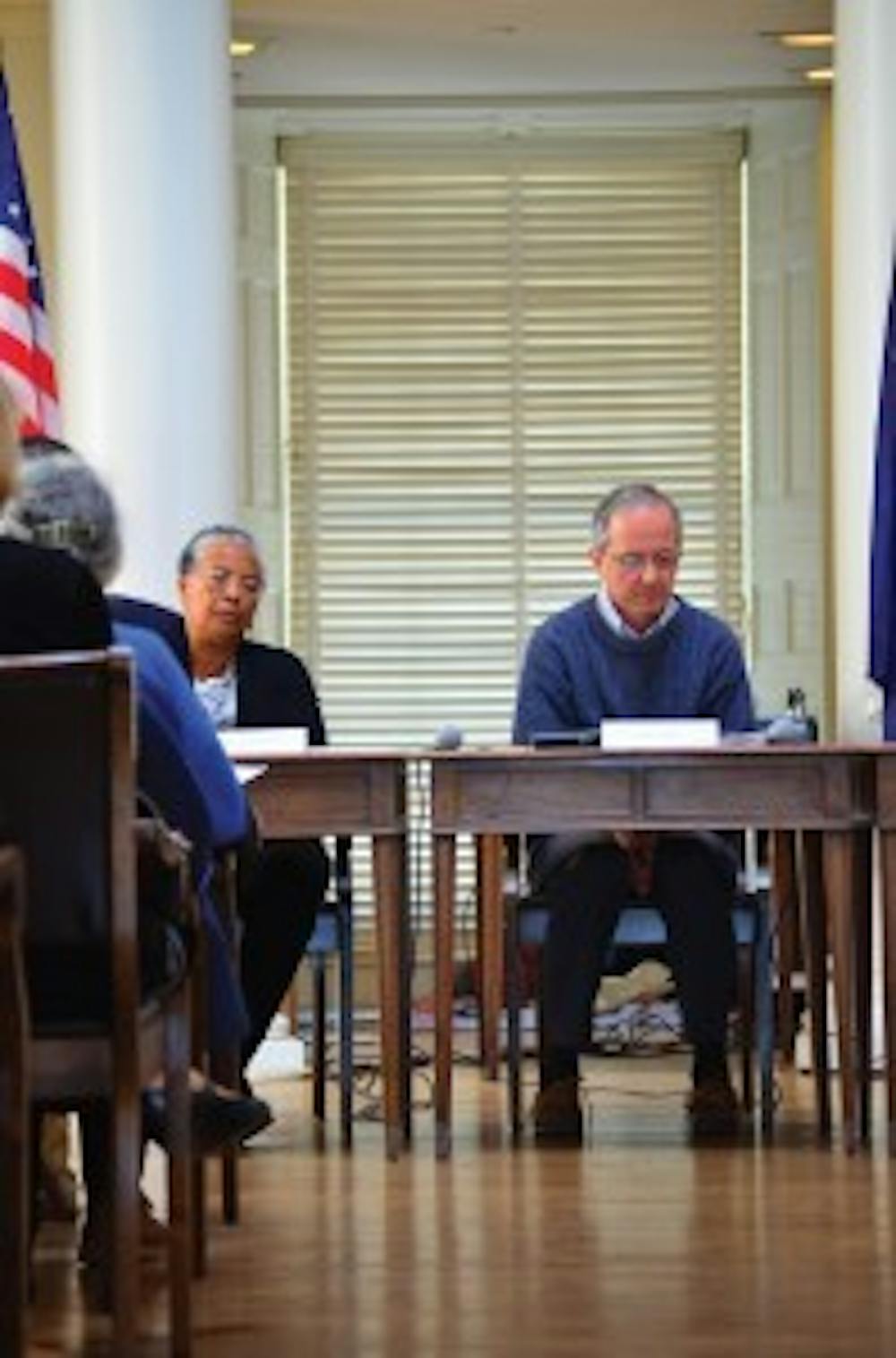The Women's Center presented the Ella Baker Social Justice Award to Queer and Allied Activism Friday afternoon at its second annual Ella Baker symposium.
Baker was a black civil rights activist who died in 1986. The Women's Center held it's first Ella Baker Day Symposium last April as part of a state-wide movement to create an Ella Baker Day in Virginia.
This year's event featured two keynote speakers - Margaret Huang, the executive director of the Rights Working Group, and Gary Flowers, the executive director of the Black Leadership Forum, Inc. - as well as two panels discussing wealth inequality, labor and the intersection of race, class and gender.
Loryn Crittendon, Women's Center intern and third-year College student, said the symposium aimed to "shed light" on current social injustices and "raise awareness for Ella Baker, for who she was, [and] why there really is a need, we feel, to have a holiday" celebrating her.
Dorian Warren, one of the symposium's panelists and an assistant professor of political science at Columbia University, likened Baker's model of activism to the Occupy Wall Street movement as "a vision of radical, participatory democracy."
Different student-run organizations set up booths in between panels to inform guests about ways they could volunteer or participate in forms of activism on Grounds.
The symposium ended with the delivery of the Ella Baker Social Justice Award and a film screening of "Fundi: The Story of Ella Baker," a documentary commemorating Baker's life.
Sociology Graduate student Hephzibah Strmic-Pawl, who helped coordinate Friday's event, said it intended to engage different minority groups, broadening the scope of discussion beyond just racial issues.
"Although in some ways, this is like a race-based conference, it's also... about intersections of race, class, gender, sexual orientation, disabilities, etc. and one of the things Ella Baker made sure to do was to work with people across different sections of identity," Strmic-Pawl said.
The event was co-sponsored by the Carter G. Woodson Institute for African-American and African Studies, the Education School, the Lesbian, Gay, Bisexual, Transgender Resource Center, the Office for Diversity and Equity, the Office of the Executive Vice President and Provost, the Office of the Vice President for Research, the Studies in Women and Gender Program and the University and Community Action for Racial Equity.







